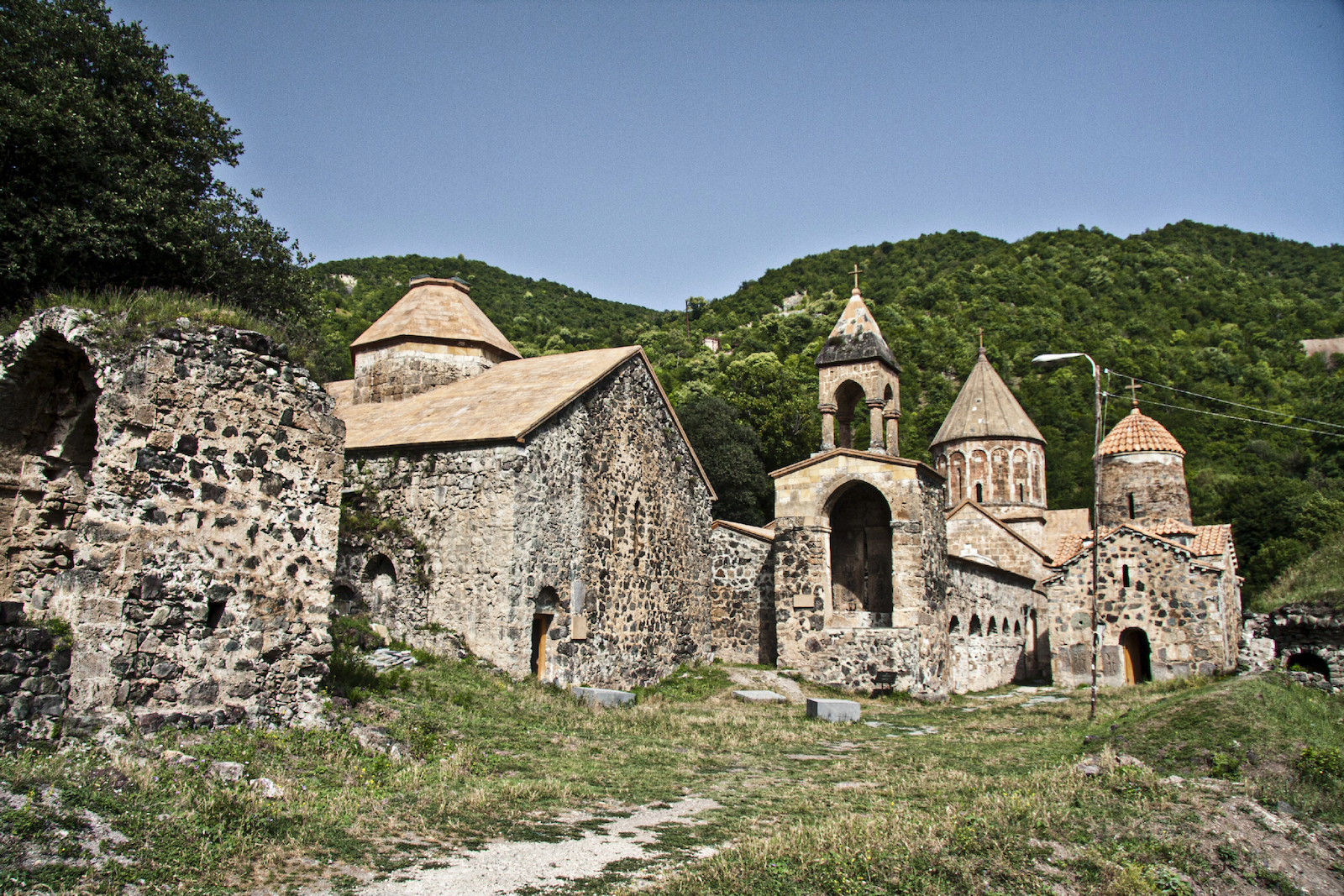
America’s Unsettling Rebuke Leaves Azerbaijan Baffled
Just six months ago, at the UN Human Rights Council in Geneva, the alarming escalation of religious intolerance drew a united condemnation for the failure to honor the beliefs of others. Since then, the world has witnessed the ignition of one of the most significant religious conflicts between Hamas and Israel, with both factions vociferously advocating for the other’s obliteration.
Moreover, religious zealotry is rising, not just within the Middle East but globally—from the battle-hardened terrains of Africa’s Sahel, where Islamist factions challenge governments amidst the strains of poverty and food scarcity, to Pakistan’s extremism, sparking a wave of violence and intolerance that profoundly shapes the nation’s society and politics.
In such turbulent times, those nations that are paragons of religious tolerance should be celebrated. Enter Azerbaijan, a model among Muslim-majority nations. As a secular state, its constitution asserts equality before the law for all religions, actively forbidding hate speech against any faith and impeding any hindrance to interfaith dialogue. Though predominantly Muslim, Azerbaijan boasts a government and education system reflective of its Muslim, Christian, and Jewish citizens.
Azerbaijan, poised strategically on the historic Silk Road, a nexus between East and West, has long been a beacon of hospitality. Its tapestry of faiths is not merely a contemporary occurrence but is deeply interwoven into its historical fabric—a fabric not even seventy years of Soviet religious suppression could tear apart.
Today, Azerbaijan nurtures a vibrant Jewish populace, about 20,000 strong, standing out in the Muslim world with educational institutions, cultural hubs, and even Hebrew language courses at the University of Baku. The country has inaugurated seven synagogues, with the latest in Baku, completed in 2011, being the first government-funded synagogue in a predominantly Muslim nation. Catholic, Protestant, and Orthodox Christians also thrive in peaceful coexistence.
Azerbaijan, nestled between Russia and Iran—both at odds with the West—remains a steadfast Western ally and energy supplier. The nation has previously received accolades for its religious tolerance, including commendations from Pope Francis, who hailed it as a beacon in a world rent by violent extremism. Azerbaijan has collaborated with the European Union to champion peace and tolerance globally, has aided Western efforts to combat terrorism, extremism, and hate speech, and supports NATO counter-terrorism initiatives as a member of the Alliance’s Partnership for Peace.
The European Foundation for Democracy, in its comprehensive report from Brussels, extols the “positive impact of the multicultural model of Azerbaijan’s secular system,” a system that promotes peaceful coexistence among diverse communities and a moderate, tolerant religious interpretation. The report advocates for Western backing of Azerbaijan’s sustainability and its involvement in international dialogues, potentially elevating its role as a mediator for Middle Eastern sectarian disputes and further afield.
Yet, amidst the escalating Israel-Hamas conflict threatening regional stability, Azerbaijan finds itself unexpectedly penalized. In an enigmatic move, the United States has placed Azerbaijan on a religious freedom watchlist alongside nations like Iran, Pakistan, and Saudi Arabia. The U.S. Commission on International Religious Freedom cited concerns for the preservation of Christian heritage in Nagorno-Karabakh, now known as Karabakh, a territory reclaimed by Azerbaijan in the previous year.
Azerbaijan’s response was one of dismay and denial. “We regret and reject this unwarranted and biased decision,” declared Elchin Amirbayov, special envoy to President Ilham Aliyev, during a call. As a former ambassador to the Holy See, Amirbayov recounted Pope Francis’ visit to Baku in 2016, where the pontiff extolled Azerbaijan’s religious harmony. “We are proud of our religious diversity, which does not depend on any political conjuncture. Muslim, Jewish, Christian, we are all one family. It’s part of our DNA,” Amirbayov affirmed.
The decision to list Azerbaijan as a watchlist country is puzzling. International law has consistently recognized Karabakh and its surrounding provinces as Azerbaijani territory. Despite UN resolutions demanding Armenia’s withdrawal, Azerbaijan only recently reacquired most of the provinces after decades of Armenian occupation. The Azerbaijani Foreign Ministry and Western observers, including Emmanuel Dupuy of the L’Institut Prospective et Sécurité en Europe, have condemned the desecration and destruction of Azerbaijani cultural sites by Armenian forces over the years.
“Over decades, Azerbaijani cultural artifacts in Karabakh have been systematically vandalised, misappropriated, and destroyed,” Dupuy said. “Cemeteries have been demolished, sacred sites desecrated, and other cultural artifacts have been ransacked or left to crumble.” This was especially the case in the town of Aghdam, which was described by the British writer George Mitchell as a “ghost town,” and the “Hiroshima of the Caucasus.” “Aghdam is perhaps the saddest and most striking example,” said Dupuy. “A once lively Azerbaijani town, it was entirely destroyed by Armenia in 1993, and left in desolation.”
The inclusion of Armenia on the same watchlist, however, never materialized, prompting accusations of double standards from Amirbayov. He contrasts this with Azerbaijan’s commitment to safeguarding all cultural and religious sites post-liberation. Furthermore, Azerbaijan perceives potential bias in the U.S. Commission’s report, noting that one of its authors, Danielle Saroyan Ashbahian, has ties to Armenian advocacy groups.
The U.S.’s apparent partiality in this matter is concerning. It risks sidelining Azerbaijan, a country whose secular Muslim identity and alignment with the West render it a potential mediator in regional conflicts. Azerbaijan’s recent peace overtures towards Armenia underscore this potential.
In a world craving moderation and tolerance, it is counterproductive to estrange a strategic partner like Azerbaijan. Instead, the West would do well to harness Azerbaijan’s rich experience of religious pluralism, guiding a more harmonious existence in the Middle East and elsewhere.
